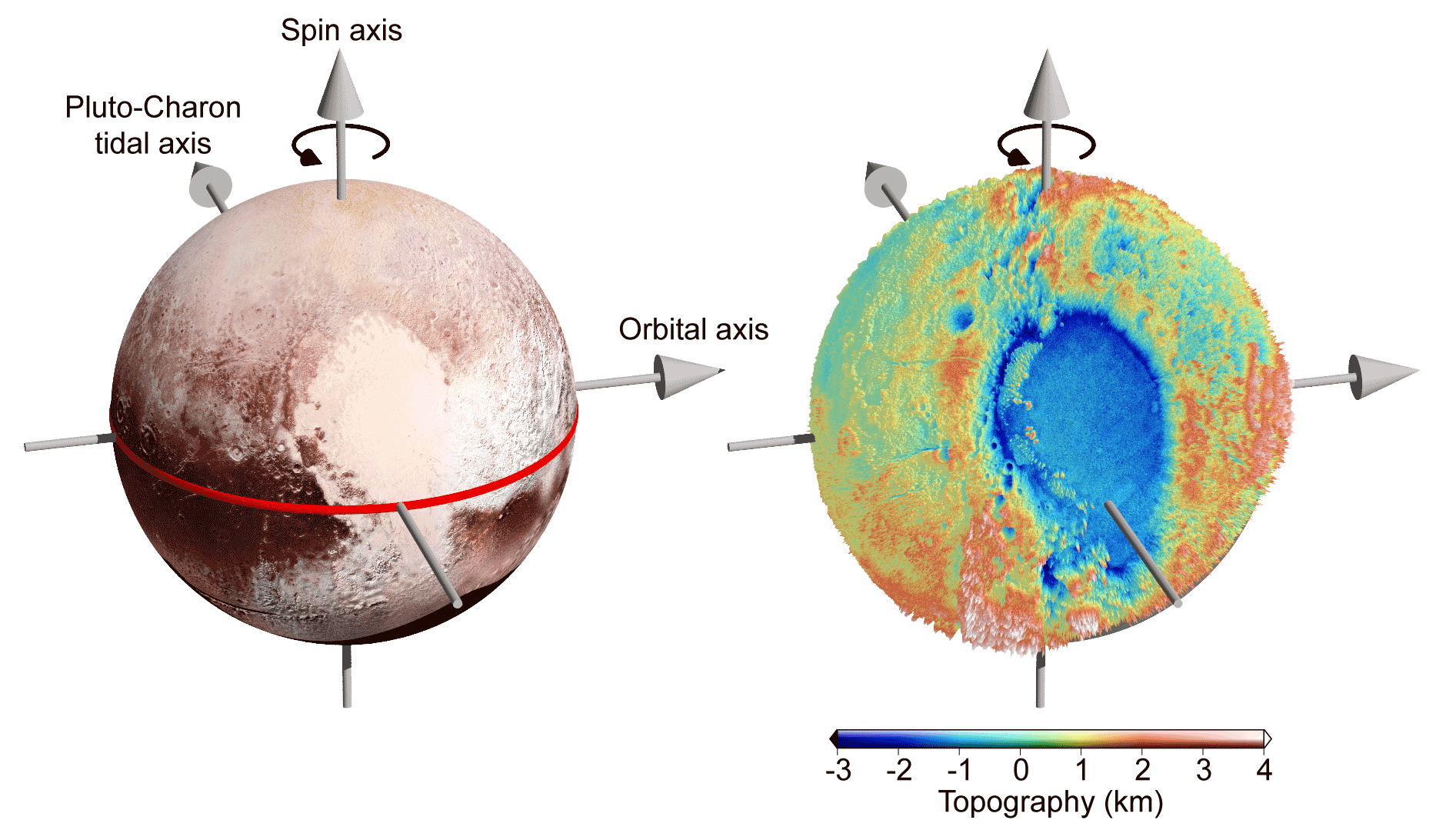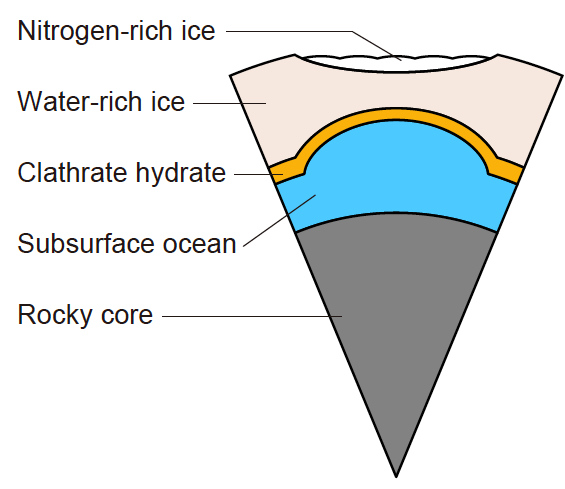Gas-hydrate layer keeps Pluto’s ocean warm
In 2015, the dwarf planet, Pluto, received its first visitor from Earth. NASA’s New Horizons probe sent back spectacular images that showed, among other things, the “heart” of Pluto – a region named Tombaugh Regio consisting of, among other things, the unusually light-colored Sputnik Planitia. This is a plain that is up to one to nine kilometers deep, covers approximately the surface area of Texas, and is coated with nitrogen ice.
From its existence, researchers could already assume a few things – among other things, there is probably a liquid ocean under Pluto’s surface, like the kind that also exists on the moons Enceladus and Europa. However, for Pluto, which orbits far into the outer reaches of the Solar System, it is hard to imagine that this ocean didn’t freeze solid a long time ago. For the oceans on moons, for example, it is assumed that the gravity of the giant planets that they are orbiting produces enough heat to keep them in a liquid state. Pluto doesn’t have a heating mechanism like that.
A team of Japanese researchers is now reporting a different possibility in a paper. According to the team, a layer of gas hydrates (clathrates of gaseous substances in frozen water) could sufficiently isolate the ocean from the surface, so that the liquid ocean doesn’t freeze. These gas hydrates, also called clathrates, are very viscous and have a low conductivity for heat, so good insulating properties.
In computer simulations, the researchers simulated the life of Pluto since its birth 4.6 billion years ago. The simulations show that the dwarf planet could achieve its current state only if this insulating layer does exist. Without this layer, the ocean would have frozen solid hundreds of millions of years ago – with the layer, the ocean remains liquid forever. The layer might be made of methane that has risen out of Pluto’s rocky core. The methane trapped in the clathrates would also explain why there is so little methane, but a lot of nitrogen, in Pluto’s atmosphere.
Thus, it seems likely that Pluto does have such a subsurface ocean. But the researchers also see it as good news for other worlds that don’t have pronounced heating mechanisms. “This could mean there are more oceans in the universe than previously thought,” says Shunichi Kamata from Hokkaido University, “making the existence of extraterrestrial life more plausible.”


